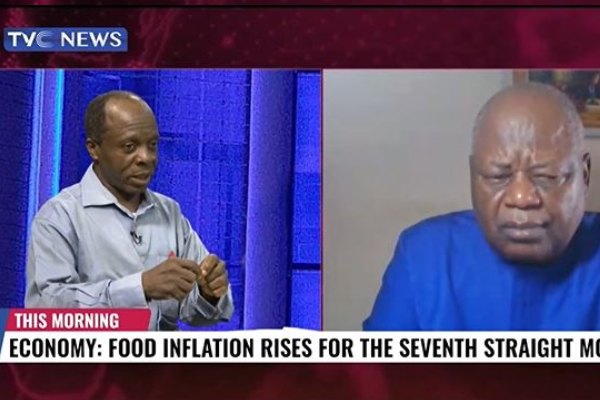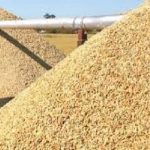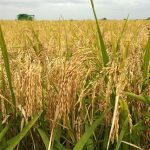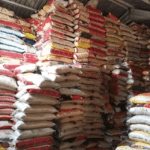According to the National Bureau of Statistics’ (NBS) new Consumer Price Index (CPI) report, Nigeria’s CPI increased by 20.77% year on year in September 2022. The index increased by 1.36% month on month, compared to 1.77% increase in the previous month.
This represents the highest rate since September 2005, according to data tracked by Nairalytics, a web portal that publishes Nigeria’s historical macroeconomic data.
The food inflation rate in September 2022 was 23.34% on a year-on-year basis, marking an uptick from the 23.12% recorded in the previous month. The increase in the food index was attributed to increases in prices of bread and cereals, food products, potatoes, yams, and other tubers, oil, and fat.
The ‘’all items less farm produce’’ or core inflation, which excludes the prices of volatile agricultural produce, stood at 17.60% in September 2022 on a year-on-year basis; up from 17.2% recorded in August 2022.
[wonderplugin_video iframe=”https://youtu.be/7wppotOlaf0″ lightbox=0 lightboxsize=1 lightboxwidth=960 lightboxheight=540 autoopen=0 autoopendelay=0 autoclose=0 lightboxtitle=”” lightboxgroup=”” lightboxshownavigation=0 showimage=”” lightboxoptions=”” videowidth=600 videoheight=400 keepaspectratio=1 autoplay=0 loop=0 videocss=”position:relative;display:block;background-color:#000;overflow:hidden;max-width:100%;margin:0 auto;” playbutton=”https://www.tvcnews.tv/wp-content/plugins/wonderplugin-video-embed/engine/playvideo-64-64-0.png”]
The highest increases were recorded in prices of gas, liquid fuel, passenger transport by air, passenger travel by road, and solid fuel.
Discussing the current food inflation in the Nigeria on This Morning with Yori Folarin, Prof Ken Ife, Development Economist said Inflation is measured by five indices. The aggregate of all of them is referred to as headline inflation. That is the price index composite which is based on a weighted average.
The inflation figure according to Mr Ife came down at 20.77%, but marginally increased in August from 20.52 to 20.77% which is a very small increase, much smaller than the previous month.
According to him, the previous month had a much larger percentage, almost 1%.
He noted that the second one, which is quite popular is called core inflation. Core inflation is all indices minus the most volatile element, which is food sub basket index. A food sub basket index is currently at 23.34%. That is the highest, and it’s been the highest for years.
Mr Ife noted that the rate of increase of food decreased in August and September much more than it did in the corresponding period last year and then also than it did in August which is due to the fact that we are in the season of harvest.
According to him, the next result we are going to get for next month is going to be considerably higher because of the flood which really needs to be tackled.
“Since most rice fields are located in flood prune areas, the situation is worse in the rice-growing region. And it’s serious, really serious, because not only are tens of thousands of hectares of rice being destroyed, but people are also being relocated to refugee camps as a result.
“However, the large refiners and millers that we have urged to intervene in order to support them in expanding their capabilities and hiring are also severely impacted.
Still speaking on the issue of food inflation, former senior SA to two successive Agric minister and policy analyst, Dr Olukayode Oyeleye, stated that those in the rural areas are not insulated from the economic reality as they are generally an integral part of the economy and the day to day happenings within the economy also affect them one way or another.
He pointed out that although some food items are produced in rural areas and made available to people who live there, there are also some that are shipped in from urban areas.
Major millers, according to Dr. Oyeleye, are situated in suburban areas because they require electricity to support their operations; otherwise, the cost of milling would be prohibitively high. As a result, transportation of the meal rise to rural areas will be necessary.
He continued by saying that many of our rural communities are not really part of the economy’s mainstream due to logistics and supply chain issues, as well as generally poor roads.
And so many of the rural communities don’t have access to the urban communities, which makes the cost of moving things from the urban centers to the rural areas, even those that are very close to urban centers, the cost is very high.
Dr Olaleye said flooding is another issue which has also affected the prices of food but now is the time to start discussing about dry season, irrigation, farming now
Talking about storage policy, Mr Ife noted that releasing of strategic reserve is very important to mitigate short term shortages and rapid rise in the price.
According to him, if rice prices begin to rise rapidly, it is because we have invested hundreds of billions of dollars in the transition from import to export on rice.
“If you release the strategic reserves now, it will deter those who want to smuggle and import rice.” The lower price, which is maintained. Every day, it has risen from 25 to 27 to 30.
Dr Oyeleye added that there’s a need for us to make sure that we don’t allow this gap because it’s going to discourage the millers who had invested a lot as rice happens to be one of the biggest staples consumed in Nigeria on a daily basis.
He cautioned that as the country moves into election period, if we are not very careful how we go about making provision for rice importation, it’s going to be hijacked by political bigwigs and that is going to be a problem.
“A similar thing happened about ten years ago and we should not allow a repeat of such.
“Our fiscal policy has to be properly put out and implemented and that’s very, very important”.
He added that the country needs to step up issues having to do with storage facilities cutting across various commodities.
“There will be a problem if we don’t make provisions, take advantage of when the flood subsides now and quickly get into dry rice farming, support those who produce locally while making provisions for importation.”














